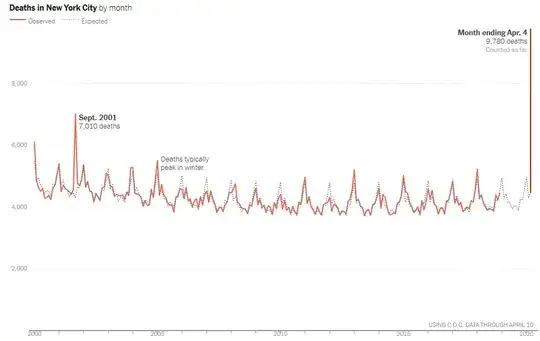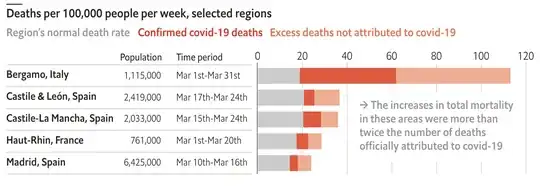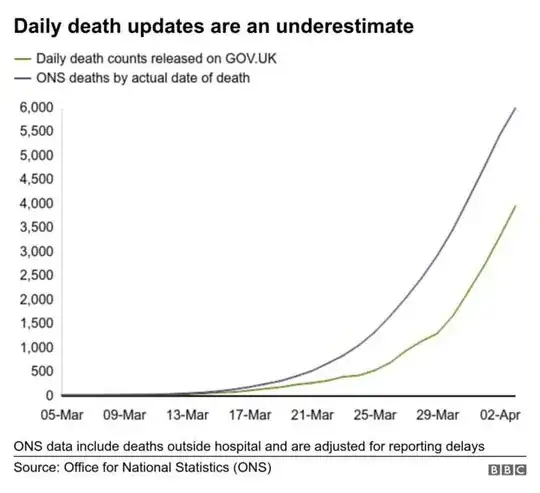There is actually a fairly standard statistical method of deriving event death numbers, when official sources aren't trusted: You check the total mortality during the event, and compare it to expected mortality for that period (based on historical data). This technique, sometimes called "mortality displacement", or "excess mortality", is a tool commonly used by historians and other professionals that has been employed worldwide to get more accurate mortality estimates from events like hurricanes, earthquakes, and tsunamis.
Of course when this is done, it almost always gives a number far higher than official death tolls. For instance, Wikipedia puts the Katrina Death toll in New Orleans at 1,464, while this excess mortality report shows about 2,751 more deaths than normal for the first six months of 2006 (on a lower population too, as the city had been evacuated). The main reason is it accounts for "butterfly effects".
For example, take a New Yorker who dies having an asthma attack at a hospital due to lack of respirators, who if they'd had that same attack the previous year they would have gotten on a ventilator and recovered. Mr.'s Hume and Limbaugh would clearly argue that's certainly not a Covid-19 death, even though that person would have lived if not for the pandemic.
This is why you should look askance at anyone who claims deaths are going overreported, due to some technicality. Actual deaths from events like these, due to the knock-on effects they have that are hard to account for, are invariably underreported. There's no good (non-political partisan) reason to be trying to lower death counts, in all but the most far-fetched contrived cases.
So how does excess mortality compare to official reported mortality in New York? Well, this graph from the New York Times 3 days ago tells an interesting story:

Flavor this with this bit of reporting:
The recent numbers are most likely an undercount. Even in normal
times, death certificates take time to be processed and collected, and
complete death tallies can take weeks to become final. This is
especially true for cases involving coronavirus.
So that gives us a death toll in New York City alone as of 3 days ago of about 5,000 (likely to be revised upwards). The best numbers I can find for the date that graph was made (April 4) based instead of Covid 19 case reporting from the CDC said the city's Covid death toll at that point so far was 2,634*. That means the CDC's numbers at that time weren't accounting for at least half the pandemic-induced deaths.
* - As of yesterday, April 12th, that total number of deaths for NYC had ballooned to 6,898
Results from Europe back up these estimates. For example The Economist compared weekly excess deaths in some of the early affected regions in this chart:

And British data released on April 14 suggested something similar according to this BBC story which used this chart:

So results elsewhere analysing excess mortality are starting to look consistent with the idea that–whatever death certificates record–they are undercounting the effect of the virus on the total count of deaths.


